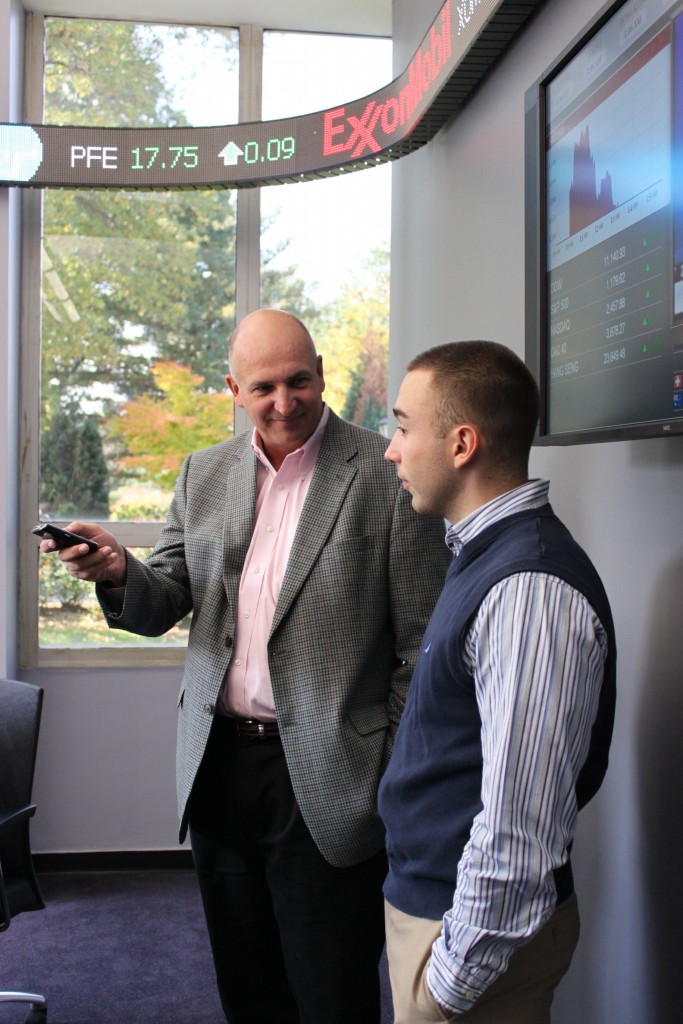Adelphi's own Michael Driscoll, M.B.A. '89, Ed.D., weighs in on the ongoing discussion surrounding the United Kingdom's decision to leave the European Union.

Michael Driscoll, M.B.A. ’89 Ed.D., (left), a former stock trader, teaches in Adelphi’s Robert B. Willumstad School of Business.
The United Kingdom’s vote to exit the European Union has already roiled stock markets around the world. What’s ahead? We turned to Michael Driscoll, M.B.A. ’89, Ed.D., clinical assistant professor in the Robert B. Willumstad School of Business and a former Wall Street trader, for some insights.
What does Brexit mean for Britain politically and economically?
I think that Britain has only just begun to see what could happen to the country politically with the resignation of David Cameron as prime minister. New leaders who think they have the ability to navigate Britain to a new course will have to be installed, and I don’t think anyone is really sure what this new cadre of leaders will look like.
Economically, I think that the U.K. will be reversing a trend toward globalization and free trade that had been in place since the end of World War II. By removing themselves from the E.U., Great Britain will be in effect reverting to economic isolationist policies of the 1930s. I think this is a dangerous policy not just for the U.K. but also for developed countries all over the world.
What does it mean for the E.U.?
The Brexit vote has significant implications for the E.U., in my opinion, because it proves that countries can in fact exit once they have been included in the E.U. As the world has dealt with economic issues in Greece, Portugal, Spain and Ireland over the last decade or so, one of the refrains was that joining the E.U. was a bit of a “roach motel” in that you could get in, but could never get out! Brexit makes me think that these countries, which went through such severe economic strains over the last number of years, could be much more inclined to try and leave the E.U. than pay the dire economic price required to remain a member.
What does it mean for other countries and markets?
One thing I learned from 28 years of operating in the global financial markets is that they hate uncertainty—whether it’s political, fiscal, regulatory or economic uncertainty. Brexit and what its implications will be are probably the most uncertain results, short of terrorist acts, that the markets have faced in the last few years.
I spent a good portion of the summer of 2013 studying in Hungary and became aware of Fidesz and the Jobbik party of Viktor Orbán. The Jobbik are anti almost everything and everybody who is not native Hungarian. It was disturbing to learn how these nativist sentiments were influencing the political and economic policies of Hungary, and I have watched closely as these sentiments have spread throughout Europe and seem to be growing around the world.
Is there anything else you’d like to add?
I feel that the Brexit vote will have much greater and longer-lasting implications than we are aware of right now. The world changed on June 23, and it may take a very long time before we really grasp all of its meaning.
For further information, please contact:
Todd Wilson
Strategic Communications Director
p – 516.237.8634
e – twilson@adelphi.edu